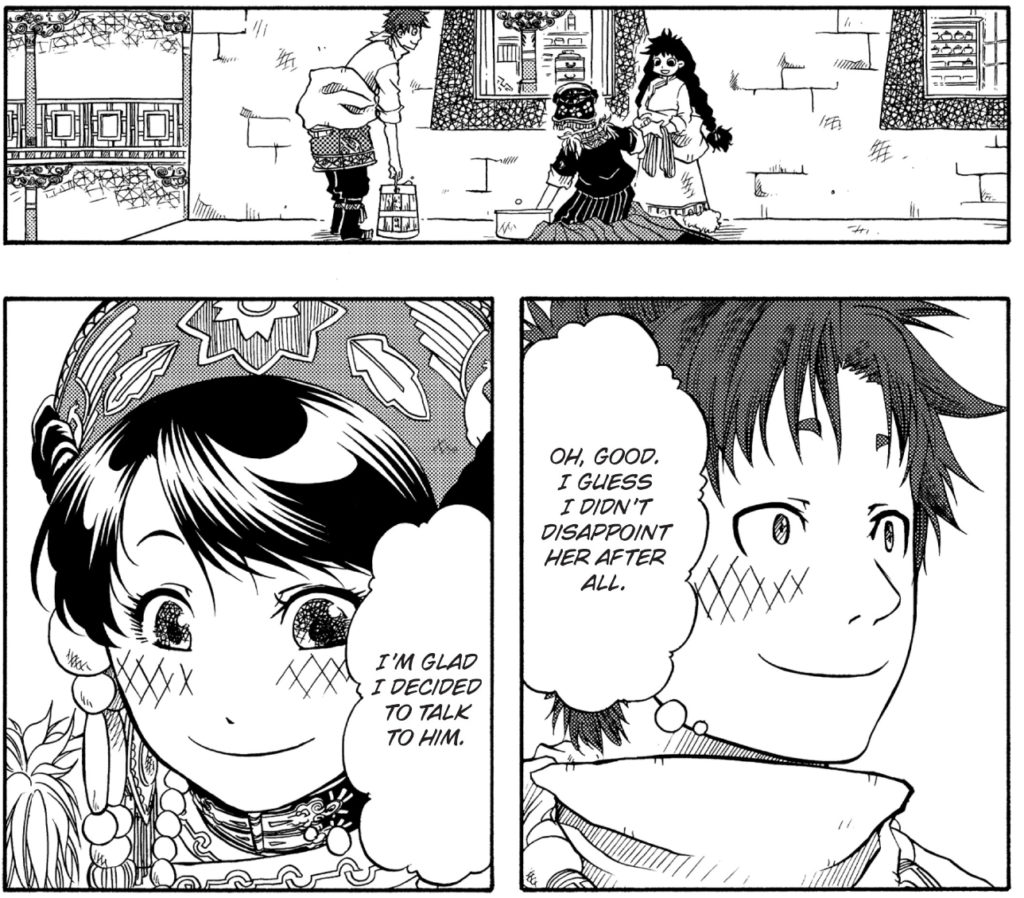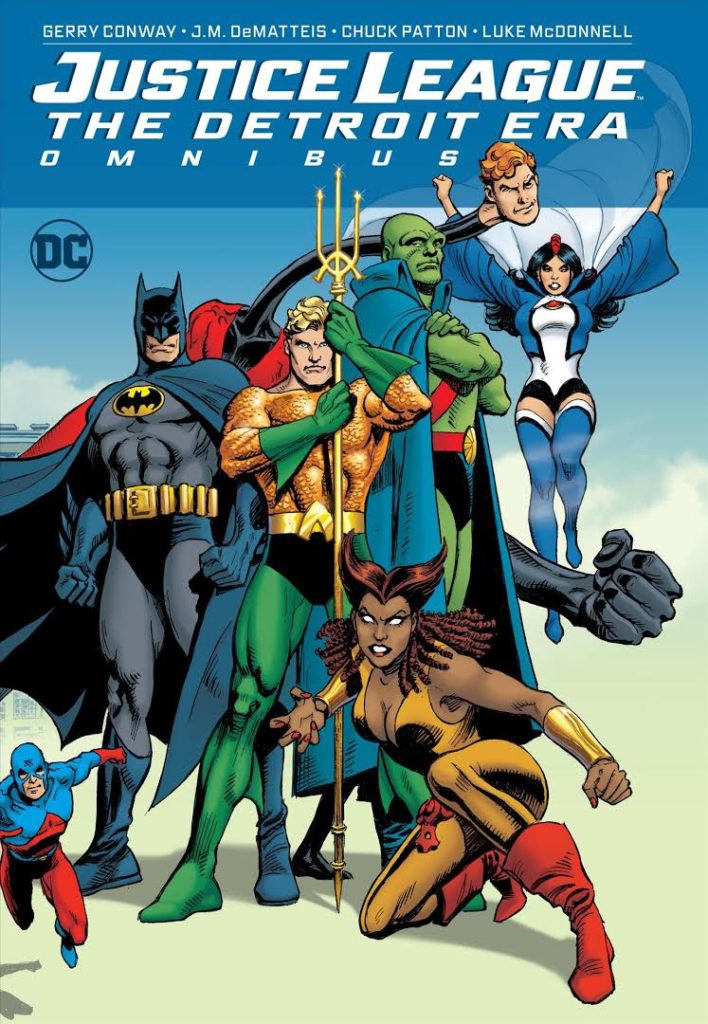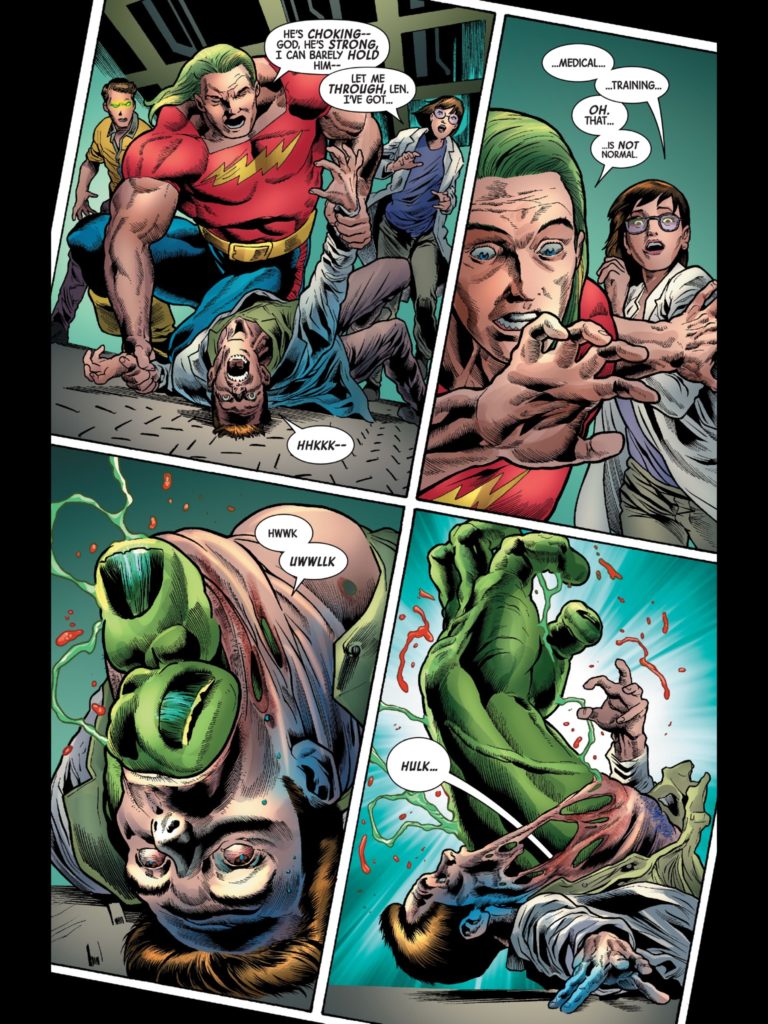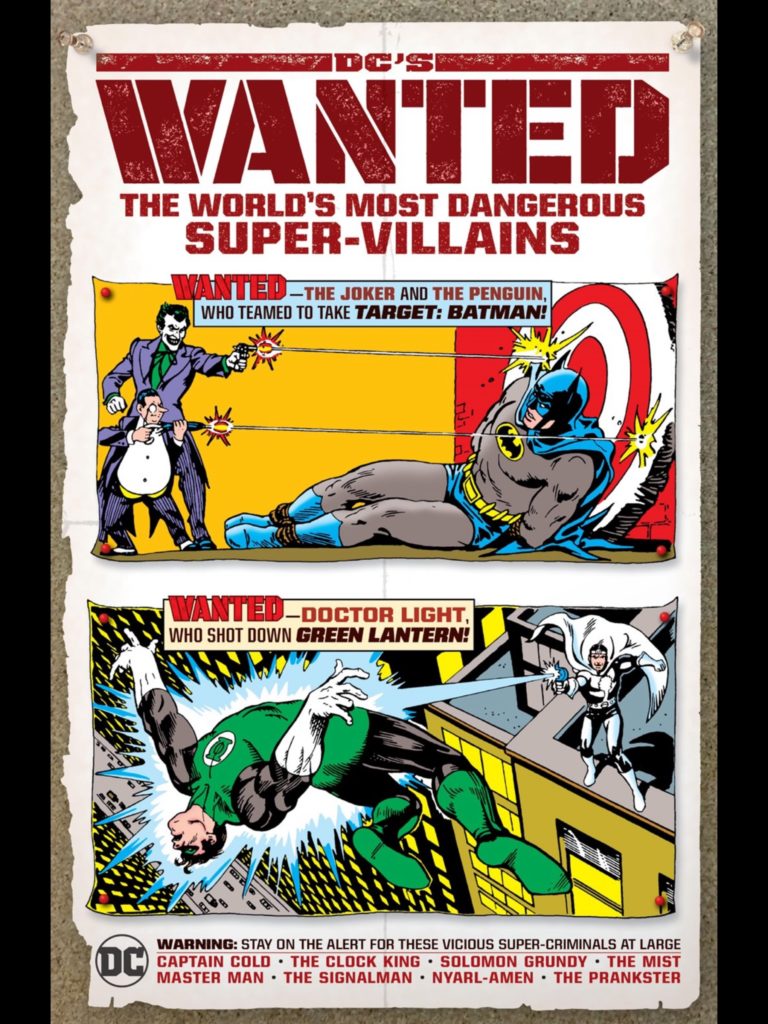0:01-1:04:41: Greetings! And right from the get-go, we’re off and running as Graeme poses a “hypothetical’ question involving, oh, I don’t know, a P.R. person for a major company in an industry that is facing systemwide disruption that threatens to be cataclysmic. And from there, we dive right into the P.R. release that came out from DC mere hours before we recorded, and from there try to track the rapidly changing status quo for the direct market that includes things like the only comics distributor in the marketplace shutting down, smaller publishers putting their publications on hold, Free Comic Book Day becoming Free Comic Book May becoming Free Comic Book Nothing For Now, and much more. Ready for nearly an hour of analysis, fretting, and “game theory”? (Don’t worry, at no point do we say that.)
1:04:41-1:13:28: Okay, and here is part two of the podcast, and we’re talking about what we’re reading: we start off by talking about the tremendousness that is the current run of The Immortal Hulk. I’m sure you’re not sleeping on this book, but if you are: don’t.
1:13:28-1:18:39: The final volume (28!) of S and M by Mio Murao was finally released on Comixology, and Jeff talks about the final volume, the reading challenges, and the friends we made along the way (and by “friends,” we mean “depraved sex acts that happen as dramatic beats in the midst of a thriller melodrama). It hung around too long, but Jeff would be lying if he said he didn’t appreciate it as its “height.”

1:18:39-1:24:41: Much easier to praise is the first volume of Blissful Land by Ichimon Izumi, a story about a 13 year old doctor’s apprentice in 18th century Tibet surprised with an arranged bride-to-be. Don’t let our digression about horny Dr. Strange stories distract you from a heartwarming, low-stakes manga.
1:24:41-1:32:28: Jeff also read the first three issues of Undiscovered Country, which turns into a jumping off point about reading comics that are perfectly fine that don’t get revisited under normal circumstances. Will that change now that circumstances are pretty god-damn far from normal? It’s a good segue to the things Graeme has been reading starting with the early issues of Legionnaires, featuring some early work by Chris Sprouse. Other relaxing “perfectly fine” old comics Graeme’s been reading on DC Universe and Marvel Unlimited and Jeff mentions being mid-readthrough of the trade of DC’s Wanted: The World’s Most Dangerous Super-Villains (currently available on Hoopla, and popping up weekly on DC Universe).
1:32:28-1:47:38: Jeff and Edi have been fighting the Covid Blues by watching more movies than usual and, hey, why not give you a quick rundown on those? Discussed: Contagion, Knives Out, Robocop, Avenue 5, Judge Dredd contagion comics, Robocop being a Judge Dredd film, and more.

1:47:38-2:01:36: In the least surprising turn of events ever, Graeme has been rereading Justice League: The Detroit Era. What may be surprising is the incredibly candid way Graeme “recommends” these issues. Also discussed: licensed comics not on the streaming services; licensed comics that *are* on the streaming services; Gerard Jones reprints; the After Truth documentary on HBO; the Danny Kaye Show; Breeders and Dev, both on Hulu; and more.
2:01:36-2:12:16: Graeme: “Are you also going nuts in this time of social distancing, Jeff?” Jeff: [gif of T-1000 melting] Good thing to come out of this conversation? A renewed desire to rewatch The Prisoner! (Streaming on Amazon Prime, apparently…)
2:12:16-2:18:37: In conclusion, we’re doing fine. However, Jeff mentions the sympathy (or, as he puts it, “pity and awe”) he has for Graeme who has to monitor the news for his job. Graeme talks a little bit about that, the process, and the wear and tear on his psyche.
2:18:37-end: Closing Comments! Look for us on Stitcher! Itunes! Instagram! Twitter together and separately: Graeme and Jeff! Tumblr, and on Patreon where a wonderful group of people make this all possible, including Dominic L. Franco, and Empress Audrey, Queen of the Galaxy, to whom we are especially grateful for her continuing support of this podcast. (Also, don’t forget about Spotify!)
Next week: Another episode!





And if you just need the episode link for, y’know, reasons:
https://theworkingdraft.com/media/podcasts3/WaitWhat291.mp3
So many things to worry about at the same time, both in and out of comics.
Questions about digital distribution:
–Have publishers taken digital distribution numbers into account when figuring out the success of individual titles?
–Do creators get royalties for digital distribution — both the first-run sales of individual issues as well as digital trades?
–Do they get any kind of royalties at all for the Hoopla-type of distribution — where the reader can borrow them w/out payment, which I guess would also include Comixology Unlimited for the ‘trades’ as well as DC Universe and Marvel Unlimited’s individual digital issues?
I have no idea for answers to the local comic shops’ problems. It’s so very very sad to think of how this shut-down will affect them and their employees. Not sure how getting a multi-distribution system back in place can help them out of this, though I see how a lack of such a system has limited their choices of what they can do. Local music and book stores, though they also face competition from digital sales, at least are not relying on one single source for their stock of product.
Thanks so much for reporting on these issues! Stay safe and healthy!
–Garrie
Hoopla pays standard library rates, as nearly as I know – higher than retail, with repeated usage in mind.
Hoopla is pay-per-borrow. Jim Zub has done some breakdowns of where he earns money from print/digital and said that Hoopla and other library sales are included.
And the “pay-per-borrow” rate is (from what I remember) $0.99 to $2.99 a title. This is why libraries generally limit how many items you can borrow each month.
The benefit for libraries is that they don’t need to bother with collection development for graphic novels, which is an area a lotttt of them struggle with, they just have everything automatically.
Thank you, Matthew–and sorry I always default to Matt!–for the incredibly edifying figures. It makes me realize I should be more proactive about checking out creator owned books on Hoopla–I have too strong an emphasis on DC’s silver and golden age anthology books where creators get a much smaller piece of the pie/no piece of the pie. (I wonder if things like that Wanted book are coming out, in fact, because DC gets to keep more of the money from the loans than, say, the latest collection of Scott Snyder’s Justice League, and part of why titles like that and First Issue Special are being collected.)
Hi, guys:
Thanks for the most recent podcast — it laid out the current crisis for the direct market very well.
Here’s an idea that someone else has probably thought of and either rejected because it’s stupid or is working to implement because it’s genius; I’d be interested in your opinions on which one it is.
1. For the duration of the public health crisis, publishers release comics as scheduled (or maybe a pared-down release schedule) and sell digital codes to consumers, but don’t sell direct. Use the same distribution structure as they use for print comics: publishers sell to Diamond, Diamond sells to retailers, retailers sell to consumers, but codes are sent electronically. Pricing and discount structure same as for print comics, but codes are returnable for those retailers that aren’t able to continue to operate even a virtual comics store.
2. After the crisis ends and the rainbow comes out, allow some time (30 days? 60 days?) for the printing/distribution system to crank up again, and declare “Come Back to Your Local Comics Shop Day” then. At that time, customers who bought digital codes from their retailers can now redeem them for a print copy of the same book — essentially the same deal that Marvel has been running with its print books for nearly a decade. Ideally, there could be a special edition for consumers who bought the digital codes, with maybe a variant cover or some kind of bonus content (and in Marvel’s case, omitting the digital code in the comic, since buyers already have it) in addition to a regular edition for walk-in customers. Possibly CBtYLCSD (branding needs work!) could be combined with Free Comic Book Day.
Obviously this would require buy-in from the major publishers (DC, Marvel and Image at minimum) as well as Diamond. It also assumes that publishers are able to generate codes at the needed scale (Marvel’s experience with free codes suggests that should be possible) and can distribute them securely as digital content, and that retailers are able to reach out to their regular customers and arrange for credit card payments. It also assumes that there are enough comics consumers who have sufficient continuing income to still purchase comics during the public health crisis.
Advantages: Publishers can continue providing new content (meaning they can continue to pay creators for producing content); Diamond and retailers will have revenue (substantially reduced, no doubt, because there’s no walk-in traffic); consumers don’t get out of the habit of reading comics, and don’t have a big bolus of comics to pay for when the system resets.
What do you think?
I should have added another advantage: If adopted, it would demonstrate that the major publishers are committed to support retailers instead of just taking the money and running.
Rob: sorry for the big delay in replying to this post, which was pretty meaty! I’ll be curious in your reaction to all the ComicHub hubbub since it was very much on point with a lot of your ideas, and Graeme was able to talk a bit in the most recent ep about how and what went awry.
Since you asked how we’re doing, I’m going to recycle a comment from Facebook:
As folks who’ve known me a long time – we’re talking on the decades scale here – I have had really big swings in my overall well-being. Some years I was out walking every day, climbing steep hill, regularly taking part in face-to-face group activities like LARPing, and like that. Other years, not so much, and certainly the story of the 2010s for me has been slumping down and then staying slumped.
I have a very, very constrained life.
On the other hand, lots of folks – including some of you reading this – have it significantly worse, in my judgment. I have the kind of support that lets me live with a lot of comfort and security and the social circumstances to have a routinely enjoyable online life, with plenty of opportunities to be productive whenever I’m up to it.
What I’ve noticed building up is this weird sort of dissatisfaction by resonance. Lots of you don’t normally operate under the kinds of constraints that those of us with weak immune systems and such do. But now _your_ routine is shoved into a shape a lot more like ours. And I’m getting a reverse contact high – a contact low? – as y’all write it up, at various lengths and in different styles of self-reflection and self-criticism.
That is, things that have been part of my routine year in, year out _feel_ fresh in a way they haven’t in a long time, and bug me as if they were fresh. Not something I was expecting. The solution seems to be to simply take some time and review with myself how _I’m_ not being newly constricted on a lot of fronts, focusing attention back on what actually is new for me, the measures specific to handling COVID-19 transmission and all.
=-=-=-=-=
I got good comments, too, at https://www.facebook.com/bruce.baugh/posts/10157894524125491
Thanks for sharing that, Bruce.
Yes, I apologize for being so late to reply, but I really appreciated this and it stuck with me. Sorry this whole thing–and especially people’s reaction to it–are re-opening old scars. Here’s hoping the reverse-low is passing or has passed by now, and I apologize how much and how often the experiences of the disabled and the differently-abled are overlooked and remain unintegrated.
I was reading Elephantmen when coronavirus was first reported in the US. Volume 2: “Fatal Diseases”. I put it down and I will be happy to go back to it in a year or two if we are in a decent state, but for now pandemics and the opportunism that surrounds them aren’t subjects I’m grooving to in comics and other media.
Hoopla is pay-per-borrow. Jim Zub has done some breakdowns of where he earns money from print/digital and said that Hoopla and other library sales are included.